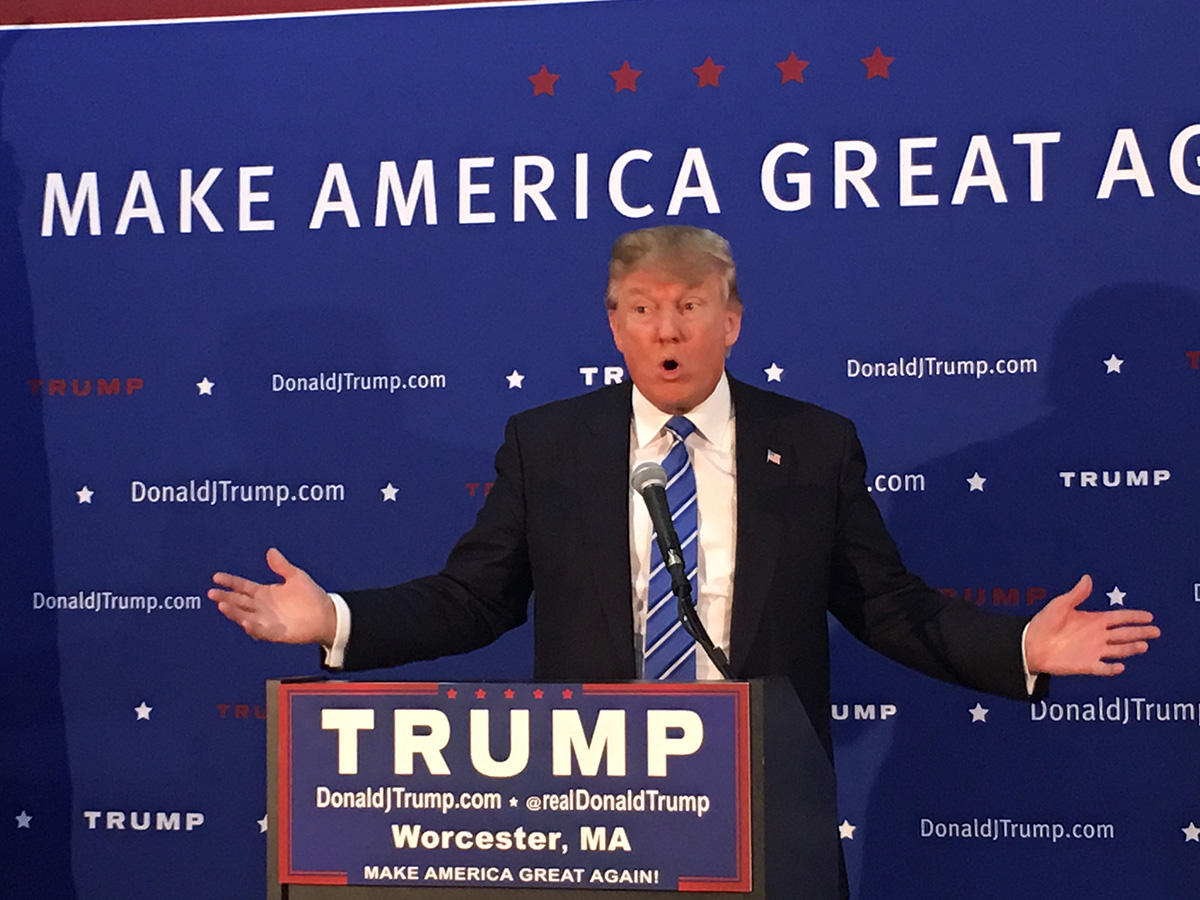Television Ad Spending On New Hampshire Primary Tops $100 Million

Donald Trump in Worcester by Garrett Quinn
On Tuesday, the barrage of 2016 presidential ads from televisions will be significantly dialed down in Boston, but local stations will still be counting the money they made off of the expensive spots for months to come. Be forewarned, though: Do not turn on your television until Wednesday if you do not want to see Jeb Bush with his sleeves rolled up and talking to a room full of New Hampshirites.
A new estimate from Kantar Media’s Campaign Media Analysis Group found that over $100 million has been spent on presidential ads in New Hampshire’s four media markets. According to the report, $64 million of the $100 million was spent by Republican candidates or their Super PACs. That is a mind boggling sum of money when one considers how little was spent in the 2012 New Hampshire primary cycle when Super PACs were around for the first time.
Since a large swath of New Hampshire’s population overlaps with the Boston television market, Massachusetts residents who won’t vote in the presidential primary for another month have been bombarded with ads. Many of those ads were specifically tailored to New Hampshire residents, not the hundreds of thousands of Massachusetts residents who saw them. This happens every year in New England, even though many political consultants consider advertising heavily in the Boston media market to be a colossal waste of precious campaign resources. Federal campaign laws require formal political campaigns to receive the lowest possible rate for TV ads, but Super PACs don’t receive that deal, so in many cases they pay seven times as much as traditional campaigns. Campaigns and Super PACs for candidates in the so-called “establishment lane” of the Republican Party, like Bush, Chris Christie, Marco Rubio, and John Kasich, have dominated the bulk of television spending.
Boston is not the only non-New Hampshire market to benefit from the political largesse of campaigns and Super PACs. Portland, Maine and Burlington, Vermont are also on the receiving end of the campaign cash spigot. The shape of the New Hampshire media market creates drastic changes in pricing for ads. According to Bloomberg, a 30-second spot on 60 Minutes in Boston cost the Donald Trump campaign $20,000, but an ad during the same show in Burlington cost $1,200.
The Boston media market is so strong that it bleeds into all of southern New Hampshire and stretches as far north as Keene and Laconia. New Hampshire does not have an NBC affiliate of its own, so it largely relies on WHDH in Boston, WPTZ in Burlington, and WCSH in Portland for Peacock Network programing. All of which adds up (in a literal, financial sense, as well as symbolically) to why you’re seeing a relentless onslaught of ads about a state you don’t live in.


